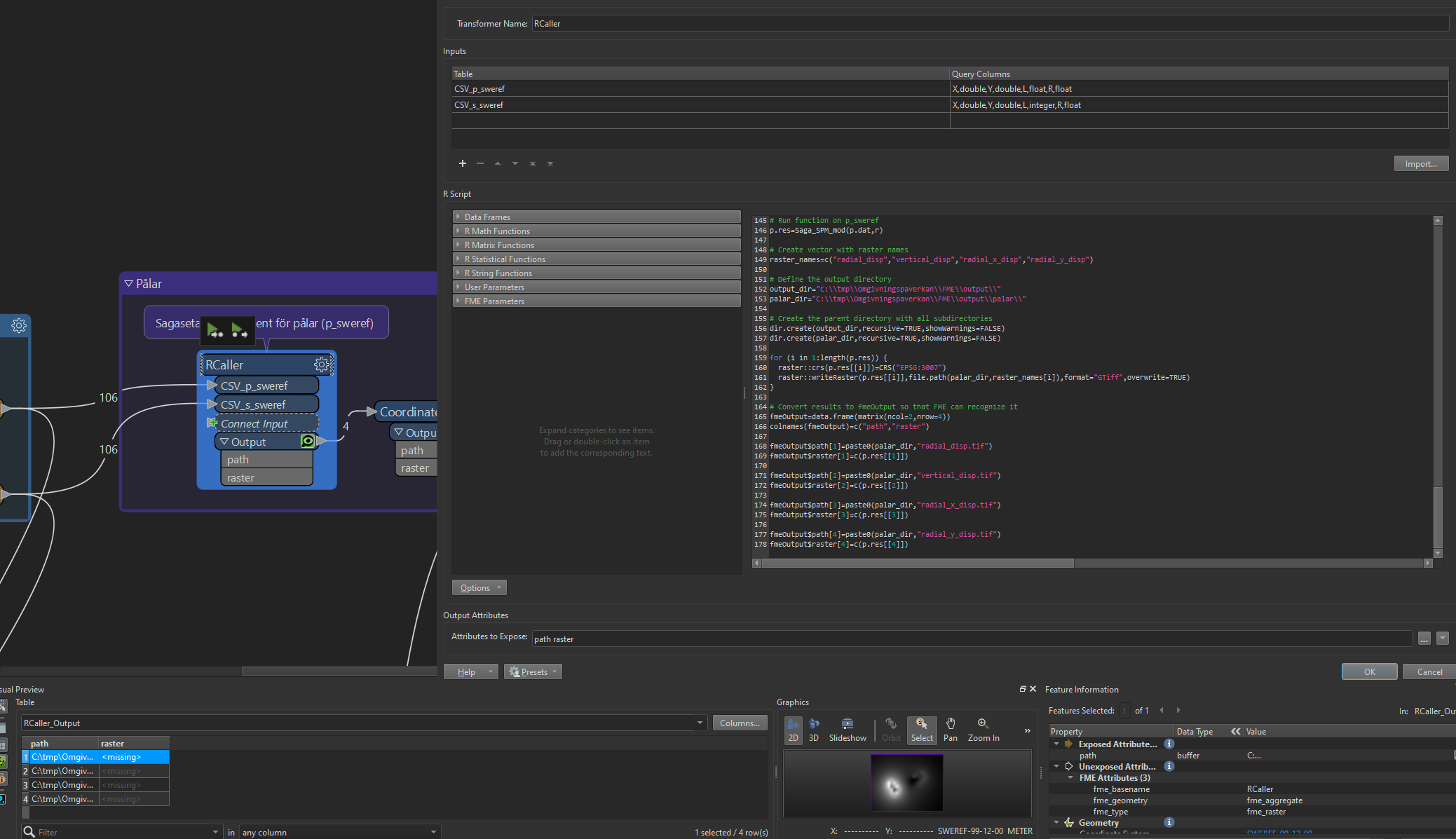Hello,
I have a general question regarding the RCaller. I have been actively coding in R over past 10 years, and started playing with integrating my code into FME for automating some of the analyses about a year ago, but what bothers me most is that FME is always putting up a fight whenever facing more complex custom R functions, i.e. loops, advanced raster processing involving raster lists/stacks, LiDAR, etc. It is always a problem when trying to get FME recognize the results as fmeOutput, and it is just never easy compared to how other things work in FME...
It just seems like the RCaller is so basic in FME, rudimental even, not allowing no unleash the full R potential within the FME environment. Hence is my question to you, have you guys considered developing it further or is it because nobody is really interested in using R inside FME? Or is it just my subjective opinion and I am basically missing something? :)
Thanks in advance.
-Sveta










